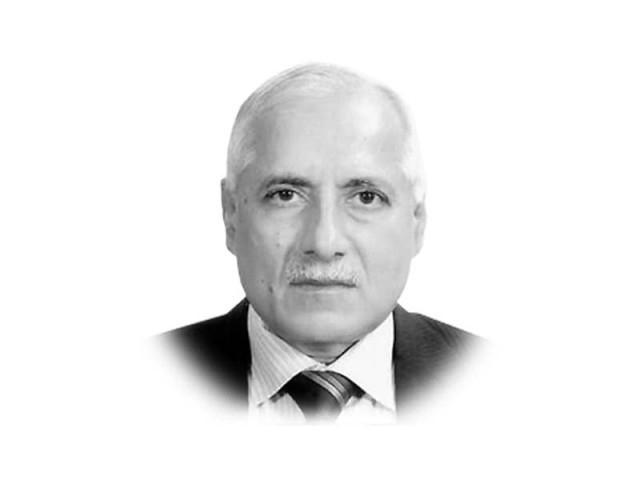Setting up an antiterrorist force — strategy and design
A force with salary in excess of equivalent ranks in police; commanded by non-professional is recipe for disaster.

The writer is a former inspector general of the Punjab Police and author of Pakistan: The Political Economy of Lawlessness (Oxford University Press, 2002)
On the counterterrorism front, the government has come up with the Pakistan Protection Ordinance 2013, with a view to giving teeth to the law enforcement agencies. At the same time, it has been decided to raise a special antiterrorist force with adequate resources, powers and incentives.
The Khyber-Pakhtunkhwa (K-P) government has decided to raise this force under the overall command of the inspector general of K-P police. The salary structure will be so modelled as to give the police constable and ranks above him a salary that is Rs4,000-5,000 more than what a constable is drawing in the ordinary police. Thus, the antiterrorist force in K-P will have a self-contained organisational structure, with no distortion of command and no dilution of accountability. The arrest, surveillance and investigation functions will be performed by this branch of the K-P police. Its immediate head will be an officer of the rank of additional inspector general or deputy inspector general, who will be responsible to the inspector general of K-P police. Thus, as a branch of the provincial police, this force will have at its disposal the support base of police stations, special branch and other branches of the provincial police. Its command will be in professional hands with sound experience and expertise.
Compared with the K-P model, the antiterrorist force in Punjab will be a separate force consisting of 5,000 persons, mostly consisting of ex-army personnel. The minimum pay of a constable is expected to be about Rs75,000. The commander of the force will not necessarily be a police officer and could be from any service. The idea seems to be that this force will be placed under the provincial home secretary or any officer from the bureaucratic elite service. It is being argued that this is a model proposed on the lines of Turkey’s antiterrorist force. The truth is that there is no antiterrorist force in the world that is under the command of an inexperienced civil officer. Policing, particularly of highly sophisticated acts of violence committed by desperados and suicide bombers, is a highly technical job, calling for experience and expertise in counter-insurgency, surveillance, investigation and relevant laws. A force with remuneration far in excess of the salary in equivalent ranks in the ordinary police and commanded by a non-professional is a recipe for disaster. It is difficult to comprehend how it will perform such specialised functions without a solid support base in terms of information collection, operational mechanism and investigative skills.
The best thing for Punjab would be to use its existing asset of the elite police force, which has proven its worth in the past. This force was raised as a force capable of combating all sorts of violent crimes and acts of terrorism. The simple requirement is that its misuse in terms of duties not originally included in its charter be effectively curbed. It needs to be reshaped and remodelled. There is no need to squander scarce resources in the form of out-of-proportion pay scales, like paying Rs75,000 per month to a constable. A raise in salary of up to Rs5,000 in the rank structure of the elite police force, its capacity-building in terms of equipment and training, and its deployment only for tasks related to violent crime and terrorism will produce tangible results. The political leadership must understand that only a self-contained force, under the command of the provincial inspector general of police, with no distortion in command or dilution in accountability, is an effective answer to successfully combating terrorism.
Published in The Express Tribune, November 5th, 2013.
Like Opinion & Editorial on Facebook, follow @ETOpEd on Twitter to receive all updates on all our daily pieces.














COMMENTS
Comments are moderated and generally will be posted if they are on-topic and not abusive.
For more information, please see our Comments FAQ